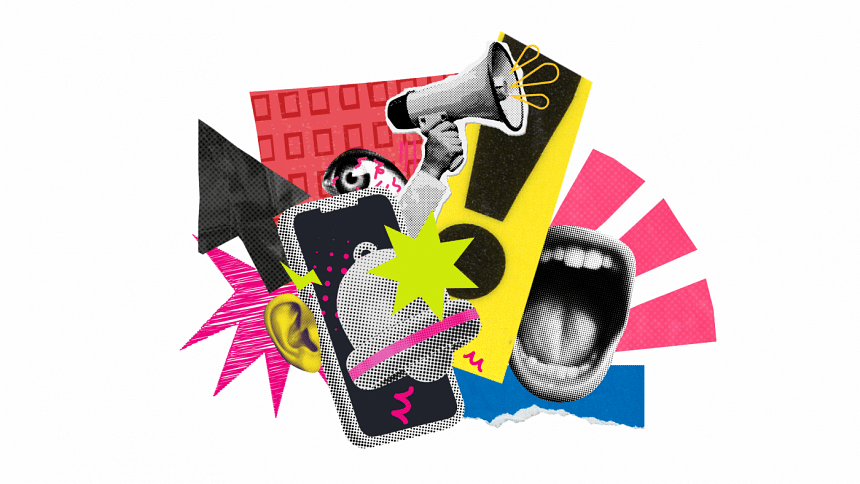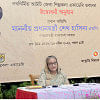We should rethink our approach to online political discussions

I was thirteen when I secretly set up my first Facebook account, with my incentive driven more by the fear of being left out than by any sense of rebellion. Back then, I viewed the world in simpler terms – believing that sharing my thoughts in public discussions was a way to contribute.
One particular exchange that has stuck with me was with a man who claimed that if women just covered up, the problem of eve-teasing would be alleviated. I'd seen enough to know that wasn't true – I'd witnessed women in burqas and hijabs being harassed as well. I said as much. The response – swift and vicious – included an onslaught of personal attacks and misogyny that left my thirteen-year-old self bruised and bewildered. My idealism, so eager to join the conversation, came up against the sharp edge of a world that wasn't ready to listen. But has it changed after ten years?
Political discussions today often devolve into verbal battlegrounds, where the goal seems less about understanding and more about winning. Social media, creating echo chambers and shrinking attention spans, amplifies this by rewarding outrage and oversimplification over nuance and depth. The result is extreme polarisation, a weakening of democratic processes, and a gradual erosion of social cohesion.
If I have learnt anything from lectures on politics, it's that at the heart of any functional democracy lies the concept of constructive dialogue. People have diverse backgrounds, interests, and perspectives; it is not just inevitable but necessary to have different opinions. However, the manner in which we handle these differences determines whether our discourse will be productive or destructive.
Platforms like X (formerly known as Twitter) and Facebook often amplify outrage, reducing complex issues to bite-sized information. This brevity encourages impulsive reactions rather than thoughtful responses. Users are not simply discussing politics, they are also defending their beliefs which leads to a toxic environment where constructive dialogue becomes a rarity. As an example, we can take into account how a Hindu family in Bhola was under house arrest over an alleged controversial Facebook post in 2021.
A key component of constructive dialogue is the ability to navigate differences of opinion. It is essential to recognise that opposing views are not inherently malicious. Rather, they stem from different experiences and beliefs. Engaging with these differences requires a willingness to listen and empathise rather than to rebut and dismiss. When online discussions devolve into name-calling or personal attacks, they not only fail to advance understanding but also entrench divisions.
When individuals retreat into ideological silos, the potential for collaborative problem-solving diminishes. Bangladesh, for instance, has witnessed a dramatic rise in partisan hostility where members of opposing political parties view each other with increasing animosity. We must, however, account for the atrocities that each party inflicted on opposition members during their time in power which exacerbated the tension between them. This polarisation is intensified by algorithms that curate content based on users' preferences – reinforcing existing beliefs and isolating them from dissenting viewpoints. The case of Abrar Fahad still bears witness to how intolerant some are to opposing viewpoints.
The pervasive nature of social media has made it easier for individuals to demonise those with whom they disagree, often framing opposing viewpoints as threats to their identity or values. This binary thinking is detrimental to society and undermines the very principles of democracy. Completely dismissing opposing views have made it nearly impossible to engage in meaningful discussions on serious topics. It's important to remember that these have real life consequences. The recent cases of Utsab Mandal and communal violence demonstrate this phenomenon.
Contrary to the popular notion that consensus is always desirable, disagreement is often the true catalyst of change. Some of the most profound social changes have been driven by dissidents who challenged the status quo. From civil rights movements in the United States to anti-colonial movements in India and Africa, voices that deviated from mainstream thought were crucial in shifting the moral arc of societies. The history of Bangladesh proves this time after time.
In these tumultuous times, we must start by building a culture of tolerance – both in terms of tolerating opposing ideas and, more importantly, acknowledging that no single ideology has a monopoly on truth. This doesn't mean silencing criticism or failing to hold others accountable but rejecting the belief that those who disagree with us are inherently evil or unworthy of respect. Tolerance is not about passivity – it's about restraint and empathy, understanding that real democracy is messy, and disagreements are inevitable, even healthy. We must also resist the temptation of simplifying complex issues into black-and-white narratives that villainise the other side.
Moreover, telling people to "just read more books" in the middle of an argument is indeed like throwing a self-help manual at someone drowning. What could work is sharing your viewpoint without being disrespectful. Think of it like explaining something to a friend who's too stubborn to read the instructions. You don't need to drop Dostoevsky on them. Just be clear, concise, and, above all, not a know-it-all.
The importance of constructive political dialogue cannot be overstated. It is through listening, engaging respectfully, and learning to tolerate – not necessarily agreeing with – differing views that enables us to protect our democratic values and ensure a future where diverse voices can coexist peacefully.
Azra Humayra is majoring in Mass Communication and Journalism at the University of Dhaka. Find her at: [email protected]

 For all latest news, follow The Daily Star's Google News channel.
For all latest news, follow The Daily Star's Google News channel. 







Comments